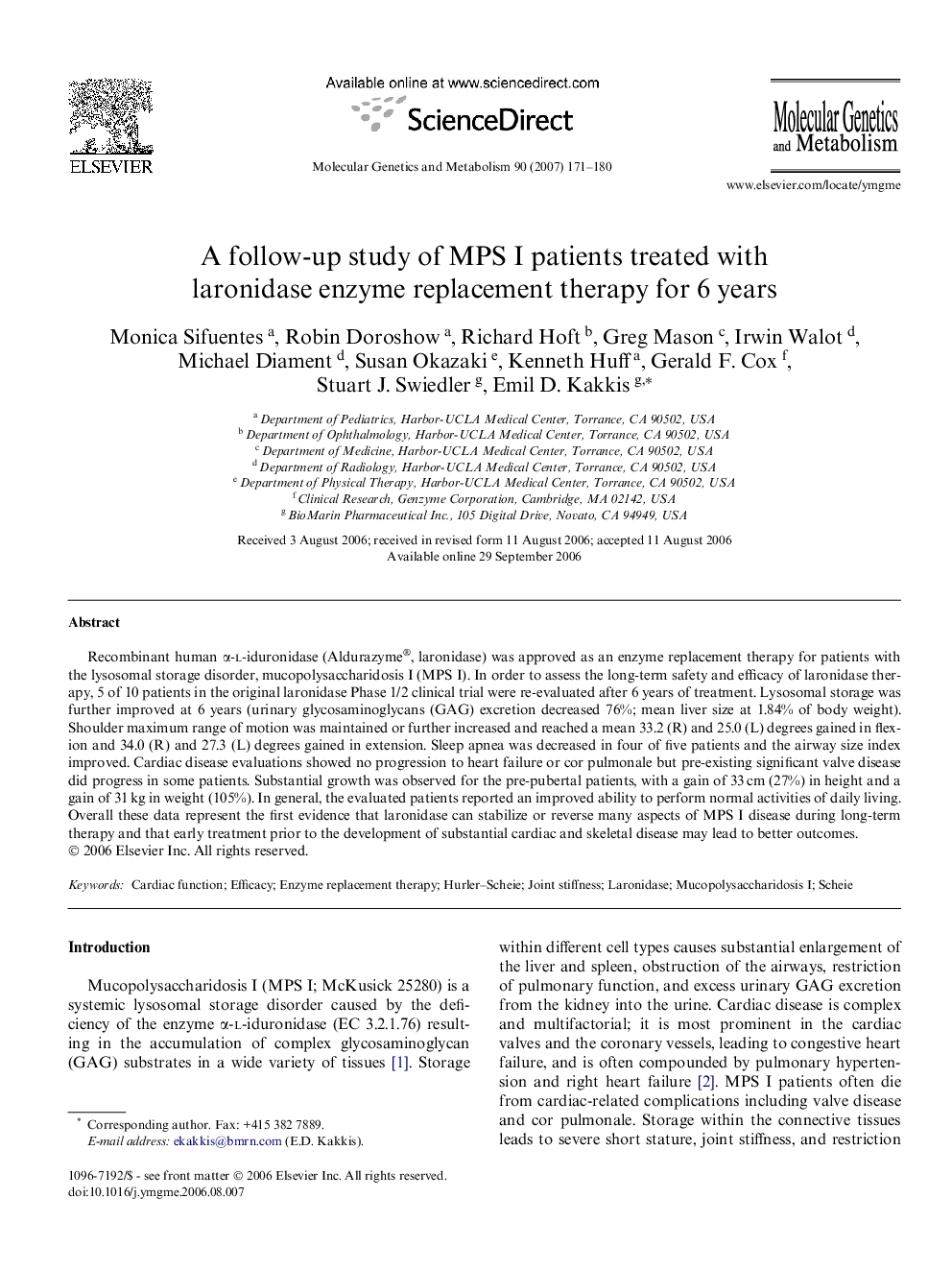| Article ID | Journal | Published Year | Pages | File Type |
|---|---|---|---|---|
| 1999040 | Molecular Genetics and Metabolism | 2007 | 10 Pages |
Recombinant human α-l-iduronidase (Aldurazyme®, laronidase) was approved as an enzyme replacement therapy for patients with the lysosomal storage disorder, mucopolysaccharidosis I (MPS I). In order to assess the long-term safety and efficacy of laronidase therapy, 5 of 10 patients in the original laronidase Phase 1/2 clinical trial were re-evaluated after 6 years of treatment. Lysosomal storage was further improved at 6 years (urinary glycosaminoglycans (GAG) excretion decreased 76%; mean liver size at 1.84% of body weight). Shoulder maximum range of motion was maintained or further increased and reached a mean 33.2 (R) and 25.0 (L) degrees gained in flexion and 34.0 (R) and 27.3 (L) degrees gained in extension. Sleep apnea was decreased in four of five patients and the airway size index improved. Cardiac disease evaluations showed no progression to heart failure or cor pulmonale but pre-existing significant valve disease did progress in some patients. Substantial growth was observed for the pre-pubertal patients, with a gain of 33 cm (27%) in height and a gain of 31 kg in weight (105%). In general, the evaluated patients reported an improved ability to perform normal activities of daily living. Overall these data represent the first evidence that laronidase can stabilize or reverse many aspects of MPS I disease during long-term therapy and that early treatment prior to the development of substantial cardiac and skeletal disease may lead to better outcomes.
